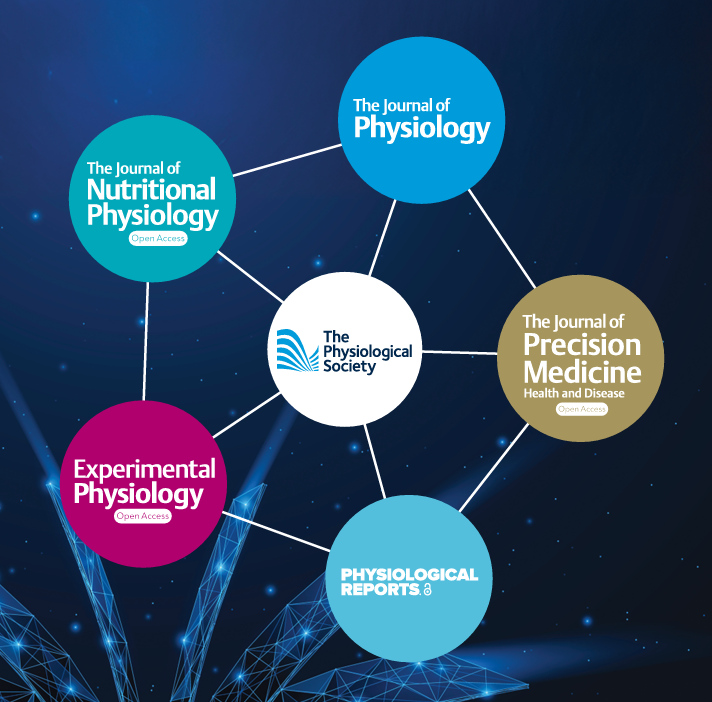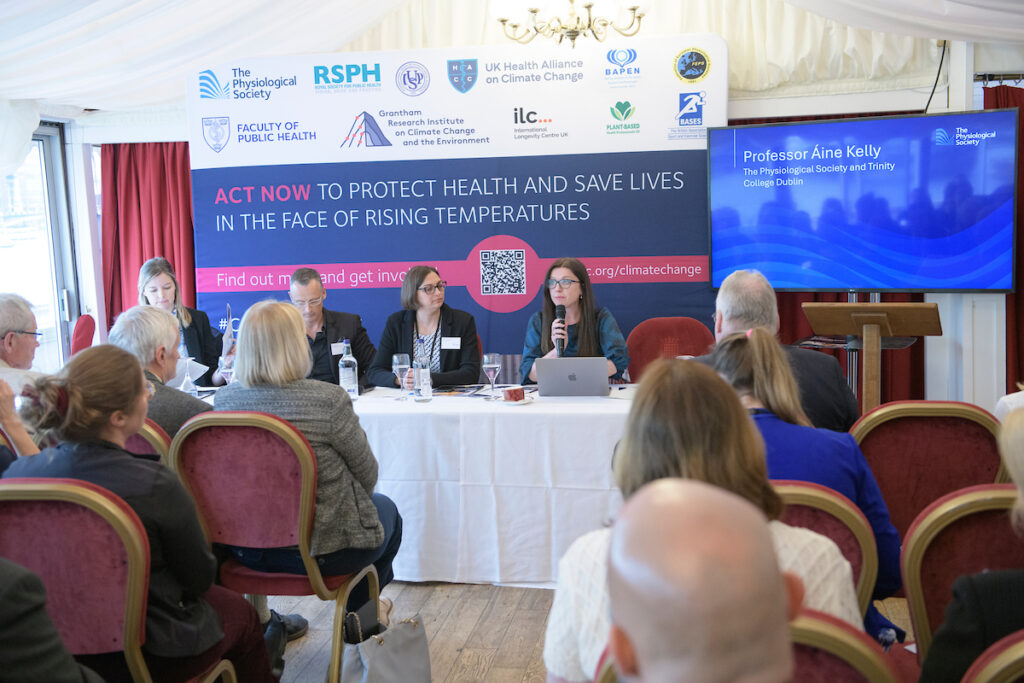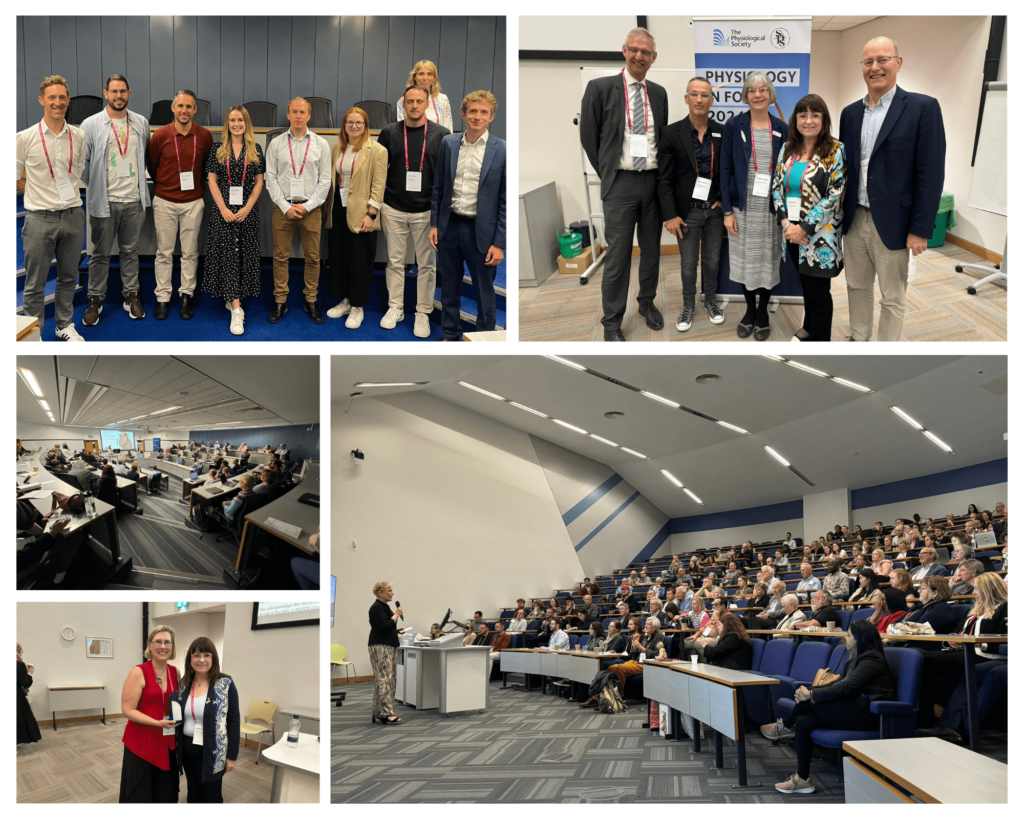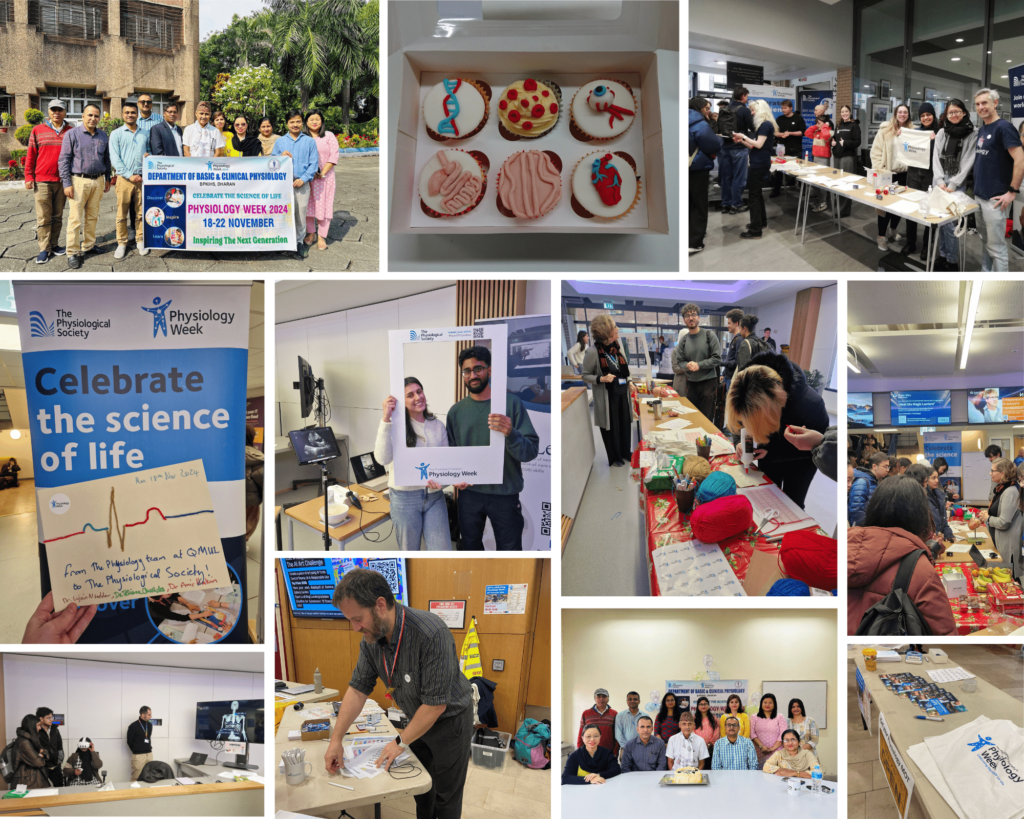As 2024 draws to a close, our Chief Executive, Dariel Burdass reflects on a successful year.
As 2024 comes to a close, I want to reflect on what has been a significant year for The Physiological Society (TPS). These achievements have been made possible through the dedicated collaboration of our staff, trustees, and volunteers. Their collective efforts have advanced our strategy across publishing, conferences, and policy initiatives, reinforcing our vision of a world where physiological discovery leads to healthier lives. This shared commitment and engagement have been instrumental in driving the Society’s success and establishing a strong foundation for sustainable growth.
This year, we launched our first new wholly owned journals in over a century: The Journal of Precision Medicine: Health and Disease and The Journal of Nutritional Physiology. We are pleased to welcome Professors Colleen Clancy (University of California, Davis) and Craig Sale (Manchester Metropolitan University) as Editors-in-Chief. These launches, based on careful analysis of the research landscape, are designed to expand our publishing activities and foster new communities in growing fields.

Nutritional physiology explores how nutrients interact with the body at cellular and physiological levels, a focus TPS has long supported through journals and conferences. Precision medicine, an innovative discipline, enables personalised treatments based on genetic, environmental, and lifestyle factors, offering improved outcomes and fewer side effects. These journals will establish TPS at the forefront of these dynamic areas, positioning physiology at the heart of cutting-edge research. Article processing charges will be waived until 2027, ensuring accessibility for researchers.
Our existing journals also made significant strides this year. Under Professor Kim Barrett’s leadership, The Journal of Physiology experienced growth in submissions and publication outputs. Efforts to simplify the submission process, including format-free initial submissions and the removal of the statistical summary requirement, have made our journals more author-friendly. Special issues now account for a third of submissions, further boosting engagement.
Experimental Physiology, led by Professor Damian Bailey, has recovered well since its transition to Gold Open Access in 2023. A strategic focus on supporting authors to meet publication standards has led to higher acceptance rates. Meanwhile, Physiological Reports, co-owned with the American Physiological Society, is on track to exceed its submission and publication records for the past four years under Professor Josephine Adams’ guidance.

Our policy work continues to excel, with our climate and health programmes standing out. In May, we published a joint report and op-ed with Wellcome, based on a roundtable discussing the mechanistic links between heat and mental health. This was followed in June by a consensus statement signed by 30 organisations in Parliament, calling for global action on heat resilience.
In November, we launched a report showcasing the relevance of physiological research to COP29 discussions. We are excited to host the Global Climate and Health Summit in July 2025, supported by Wellcome. This free event will address critical health challenges posed by climate change, featuring researchers, policymakers, and experts. Early Career Researchers, particularly from Low- and Middle-Income Countries, will have access to travel support. Registration opens soon, and details are available on our website.
Additionally, we will launch our latest policy report on 14 January 2025, highlighting how physiological research and precision medicine can transform health prevention strategies. This timely discussion aligns with the Government’s upcoming NHS plan and the launch of The Journal of Precision Medicine: Health and Disease.

In 2024, TPS hosted eight meetings across institutions such as Manchester, Exeter, Newcastle, and Nottingham, welcoming 850 delegates from nearly 40 countries.
Our flagship event, Physiology in Focus, was held in Newcastle in July in partnership with the Scandinavian Physiological Society. Feedback was overwhelmingly positive:
“Joint meetings are better than standalone PhySoc events. More diverse attendees with better opportunities for engagement.”
Two-day meetings continue to be community-driven, offering organisers a chance to raise their profiles and generate publications, with 80 papers produced to date. These meetings have been highly rated, scoring an average of 4.7/5 from delegates, with feedback such as:
“One of the best conferences I’ve attended in years.”
“Excellent meeting with engaging presentations by emerging leaders.”

To complement our Blue Plaque programme, we introduced the Excellence in Physiology Award, recognising institutions that excel in physiology research or leadership. The University of Loughborough’s School of Sport, Exercise and Health Sciences was the 2024 recipient, celebrated for its internationally renowned contributions to public health and sports performance.
This year’s Physiology Week saw participation from 64 institutions worldwide, featuring activities ranging from lectures to interactive stalls and even themed baking.
Our member magazine, Physiology News transitioned to an online-only format for financial and environmental sustainability. Following discussions with members, the new format launched in October as a member-exclusive resource. Early indicators are positive, with the latest issue achieving double the unique views of previous editions.
As we enter the third year of our strategy, TPS remains committed to supporting physiology and physiologists by fostering an inclusive environment where everyone feels valued and empowered.
I look forward to connecting with many of you at upcoming events in 2025. In the meantime, I wish you all season’s greetings and best wishes for a joyful New Year.

